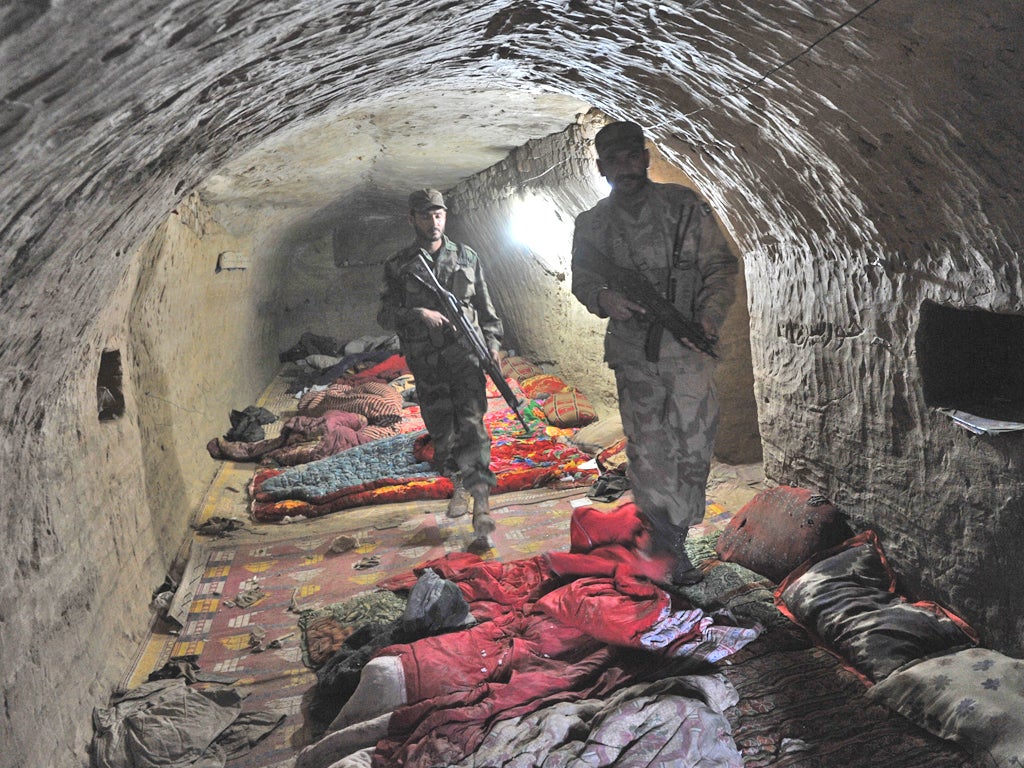From the caves of Tora Bora to an office in Qatar: is the Taliban going mainstream?

Your support helps us to tell the story
From reproductive rights to climate change to Big Tech, The Independent is on the ground when the story is developing. Whether it's investigating the financials of Elon Musk's pro-Trump PAC or producing our latest documentary, 'The A Word', which shines a light on the American women fighting for reproductive rights, we know how important it is to parse out the facts from the messaging.
At such a critical moment in US history, we need reporters on the ground. Your donation allows us to keep sending journalists to speak to both sides of the story.
The Independent is trusted by Americans across the entire political spectrum. And unlike many other quality news outlets, we choose not to lock Americans out of our reporting and analysis with paywalls. We believe quality journalism should be available to everyone, paid for by those who can afford it.
Your support makes all the difference.The Afghan Taliban announced yesterday that it had reached a landmark deal to open a political office in Qatar in what could be its first concrete step to sue for peace after a decade of insurgency warfare.
A Taliban spokesman, Zabiullah Mujahid, released a statement stating that a “preliminary deal” had been reached for “negotiations with the international community”. The statement added that it would depend on key commanders being released from US military custody at Guantanamo Bay in Cuba.
The idea of opening up an office has long been sought by American officials who are desperate to find a political exit strategy for Afghanistan after 10 years of bitter warfare. Secret talks between the Americans, intermediaries and the Taliban have been held for months, but with limited success. Until now, Taliban commanders had been reluctant to ever admit publicly that they might be willing to sit down to peace talks.
Opening up a legitimate political office would allow Taliban commanders to negotiate with America and international diplomats without fear of assassination or arrest. Western officials have also been keen to promote Qatar as a suitable venue because it would take the talks outside the influence of the ISI – Pakistan’s powerful spy agency which has long been suspected of harbouring and nurturing the Taliban’s insurgency.
According to a report in The Hindu newspaper, the influential Qatar-based Egyptian cleric Yusuf al-Qaradawi has played a key role in the talks aimed at setting up an office.
Western officials believe prisoner exchanges and ceasefire zones will be an essential part of building up confidence between the two sides. However Washington is determined that the Taliban must abandon any ideological or practical allegiance to Al-Qa’ida.
In return the Taliban will likely seek a significant political role within the southern Pashtun regions of Afghanistan where its insurgency blossomed, as well as the release of its leaders.
Key Taliban officials currently held in Guantanamo include Muhammad Fazl, the Taliban’s former deputy defence minister, Muhammad Nabi, a key financier, and two former provincial governors Khairullah Khairkhwa of Herat and Noorullah Nori of Balkh. The Taliban, meanwhile, is still holding Bowe Bergdahl, a 25-year-old U.S. Army sergeant from Hailey, Idaho, who was taken prisoner in June 2009.
Attempts to negotiate with the Taliban have repeatedly hit stumbling blocks. In 2010 British and American intelligence officials were duped by a market stall holder from Quetta who made them believe he was a senior Taliban commander. He then disappeared after pocketing large sums of cash. Former Afghan president Burhannuddin Rabani, who was tasked with negotiating with the Taliban, was killed by a suicide bomber last year whilst Afghan president Hamid Karzai ordered his ambassador to Qatar to be withdrawn late last year when it emerged attempted talks with the Taliban had been taking place. He has since relented under US pressure and signed up to the plan.
It is not yet clear whether hardline Taliban commanders, including its spiritual chief Mullah Omar, would countenance any negotiations with Nato or the Afghan government in Kabul.
Join our commenting forum
Join thought-provoking conversations, follow other Independent readers and see their replies
Comments